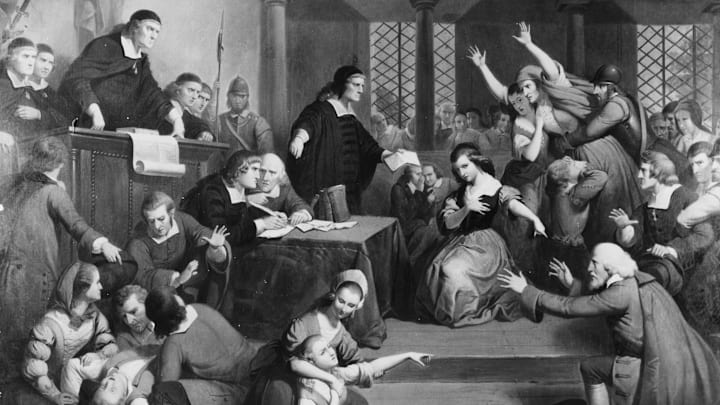Like much of Europe and colonial America, Scotland has a shameful history of witch hunting dating back to the 16th century. Between the passage of the Witchcraft Act in 1563 and its repeal in 1736, 4000 people were accused of witchcraft in the country—most of whom were women. Of the targeted victims, roughly 2500 were sentenced to death. This era is regarded as an atrocity today, and Scotland is taking steps to acknowledge its past wrongdoings. As the BBC reports, Scottish First Minister Nicola Sturgeon has issued a formal apology to the victims of Scotland's witch trials.
"Today on International Women's Day, as first minister on behalf of the Scottish government, I am choosing to acknowledge that egregious historic injustice and extend a formal posthumous apology to all of those accused, convicted, vilified or executed under the Witchcraft Act of 1563," she said in a statement at Holyrood in Edinburgh on March 8. "It was injustice on a colossal scale, driven at least in part by misogyny in its most literal sense, hatred of women."
While Scotland wasn't the only country guilty of torturing and killing people accused of witchcraft 300 years ago, it holds an appalling distinction. According to historians, Scotland's execution rate for convicted witches was five times higher than the average for Europe. Germany, Switzerland, and Catalonia in Spain have all exonerated the victims of their witch hunts, but Sturgeon's recent statement marks the first time Scotland has apologized for its participation in the mass hysteria.
Following the first minister's remarks, parliament will now decide to pass legislation pardoning those convicted of witchcraft. Scottish National Party Member of the Scottish Parliament Natalie Don is behind a bill that would make the absolution official.
Beyond the fact that most of them were women, the people accused of witchcraft centuries ago didn't always fit a set stereotype. Being very old, very young, impoverished, or financially independent could all arouse suspicion from a paranoid society. Here are more signs that you'd qualify as a witch in the 17th century.
[h/t BBC]
